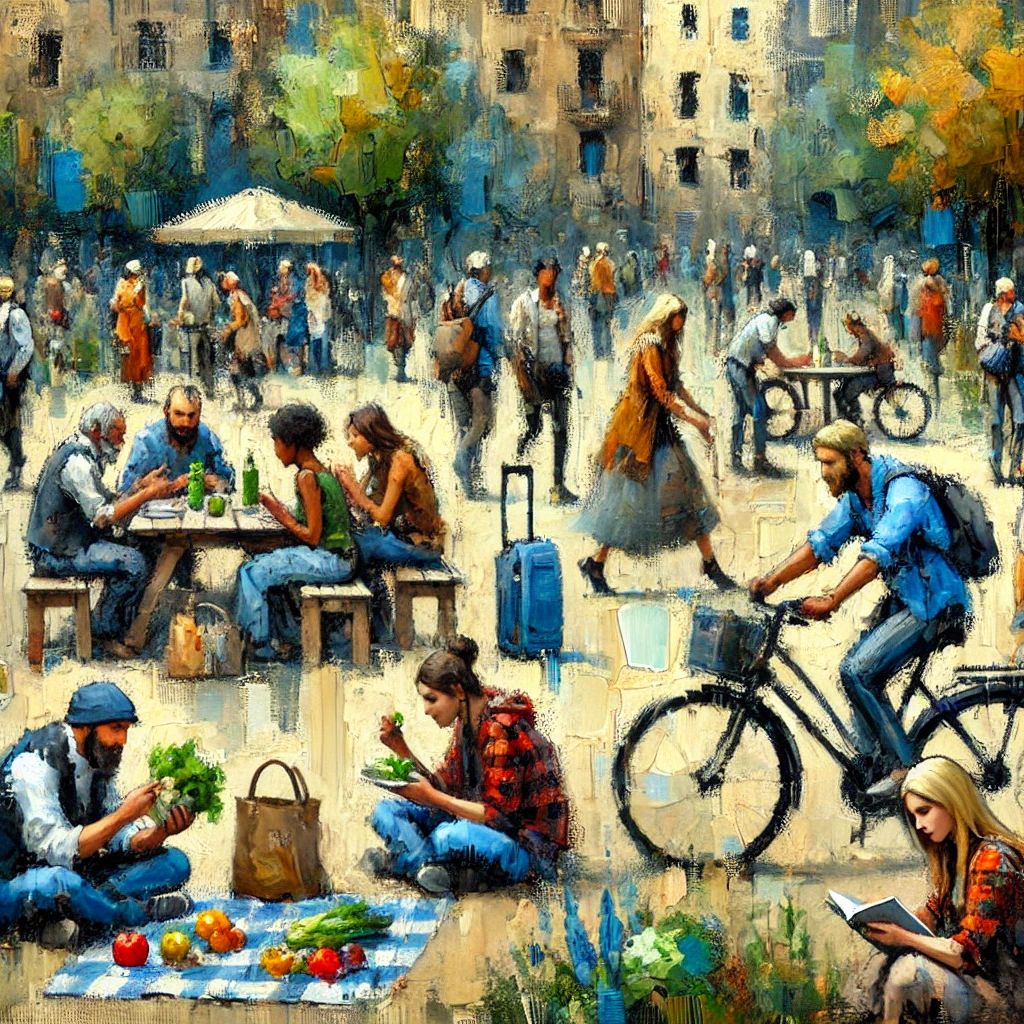the United States is home to many many sub-cultures and there also exists a meta-culture which has a strong influence on all the diverse groups that make up the nation.
Perhaps the most prolific attributes of the meta-culture (the US culture) is our love for freedom and choice.
Choice is often looked at very dichotomously in our culture; we often conclude, without flexibility or relativity, that ‘more choice’ = good. Inversely we tend to have a hard time emotionally when we perceive that we, or someone else, are lacking in choice and again we can fall back to the dichotomy of ‘no choice’ = bad or oppressive.
as we apply dialectics to the topic we arrive at a plethora of examples of how choice is both the catalyst for oppression and for emancipation… choice can embolden our authentic self and allows us to embody and exercise our unique purpose while choice also oppresses the expression of our unique self and traps us from living a fulfilling and purposeful existence.
It can be relatively easy for most people to identify how choice facilitates a subjectively better and more fulfilling life, but what is often under-contemplated is how choice is our oppressor or impediment to living a ‘better’ or more fulfilling life.
Therefore I encourage you to ask yourself the following question:
What choice, if removed, would most positively impact your well being? What choice would you be better off not having?
Again, notice that you may have an automatic negative emotional reaction to this question – If you live in the US (and many other countries) you have been primed your entire life into believing that no choice = bad… this creates anger or fear at the suggestion that you could remove choice.
One good example of a culture in which the removal of choice seems to positively impact the people is the Buddhist and Hindu cultures at temples. In many ways, routine, ritual, and a dedication to various practices are favored over choice. Additionally many cultures have removed the choice of isolating from family, or eating certain harmful foods or engaging in spiritual practices etc.
What choice would you remove?
Some examples:
- the choice to exercise
- the choice to meditate
- the choice to eat certain types of food
- the choice to read
- the choice to engage with nature
- the choice to take certain drugs
- the choice to have what quantity of alcohol
- the choice to act with aggression towards another
- the choice to lie
- the choice to avoid meeting the needs of a loved one
- the choice to engage in art
- the choice of when to go to sleep and wake up
- the choice work what amount of hours
- the choice to watch what amount of tv
- the choice to always have your smartphone
etc
